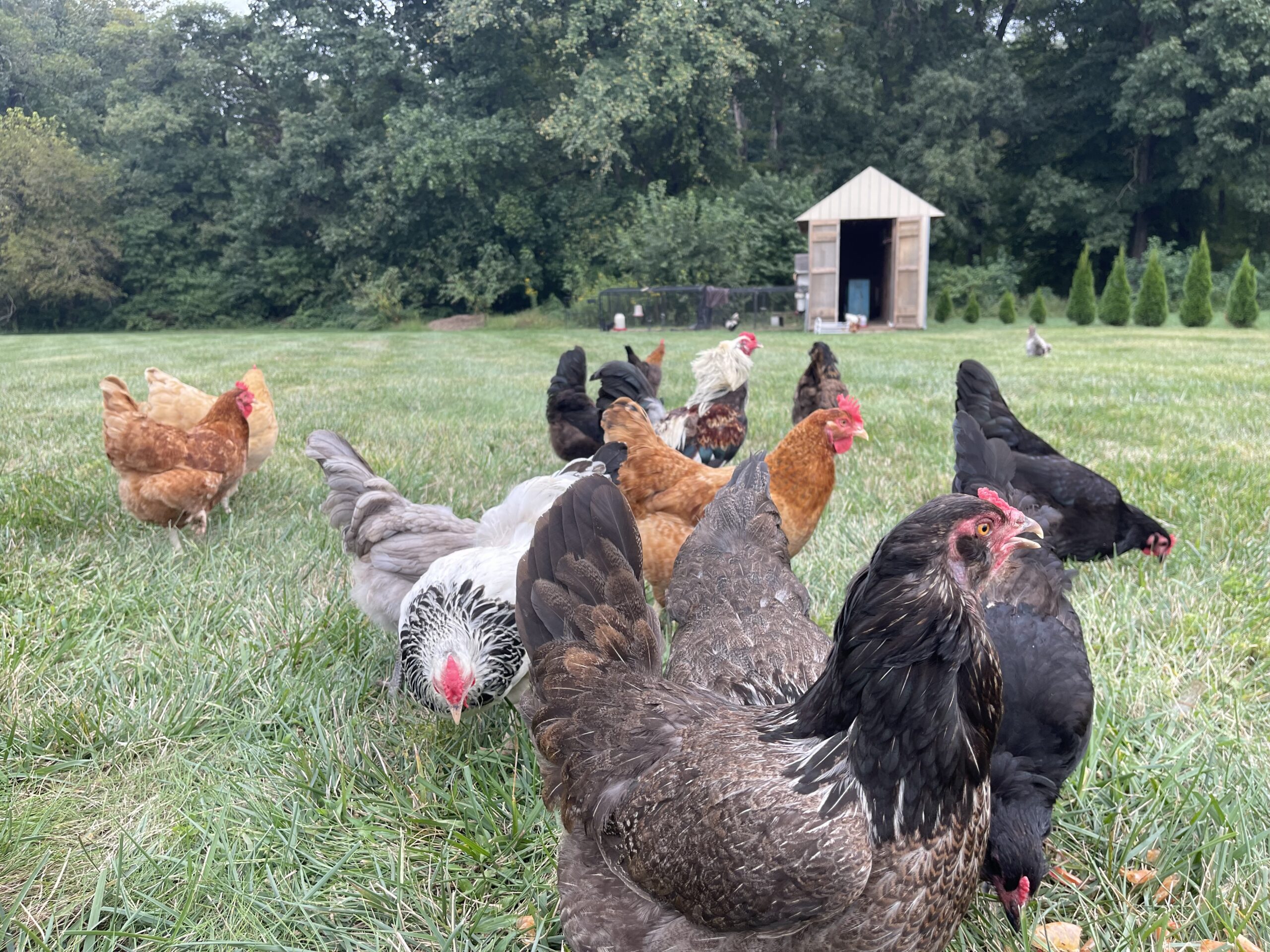An environmental group is urging Gov. Wes Moore’s administration to impose a moratorium on Maryland’s industrial chicken farms when the current permit comes up for review next summer.
But Maryland chicken farmers say they’re taking all the precautions they can to protect the environment, while also running one of the state’s biggest industries.
A debate between the two sides is starting to heat up this fall, as the state Department of the Environment holds a series of listening sessions to get the public’s point of view on the matter.
The state’s job is to make sure business is operating in a way that complies with state and federal requirements protecting the environment, according to the agency. They make revisions to the statewide animal feeding and operations permit every five years.
Animal waste is an ongoing concern for the state, mainly on cattle production in northern Maryland and poultry in the Eastern Shore counties, according to a report last fall from the University of Maryland. Most nitrogen and phosphorus in manure comes from poultry litter, according to the report, and that nutrient output is expected to rise with increases in the weight of chickens over the next ten years.
This fall, state officials are listening to testimony on the subject at meetings online and in person, as people on all sides of the question weigh in.
“Our primary goal is to make sure that we maximize public participation in the process, so we are seeking input before a draft permit is written,” said Jay Apperson, deputy director of communications for the state Department of the Environment. “We want to hear from all stakeholders, including farmers and nearby communities.”
Apperson said the department will analyze the comments and begin drafting a statewide permit that will be released early next year. A second public comment period will follow after that and the permit will be subject to the U.S. Environmental Protection Agency approval before becoming final.
Environmentalists worry about pollution
The Food & Water Watch, an environmental group, would like to see a total moratorium on new large chicken farms. They also want to limit the expansion of existing ones under corporate contracts on the eastern shore, home to one of the state’s biggest farming industries.
The group believes those farms threaten local communities, as well as the Chesapeake Bay.
Advocates with the FWW say the population of chickens in Maryland is too dense. There are about 488 poultry-concentrated animal feeding operations in Maryland, raising around 330 million chickens a year, according to the state agency.
The regular review presents an opportunity to look into the density, said Rebecca Wolf, senior food policy analyst at the Food & Water Watch. She also questions whether poultry farms are fully complying with regulations on water pollution.
“It’s a really good chance to take a look at a lot of these issues, to take a look at pollution, to take a look at the concentration,” Wolf said. She also said officials should “review how state agencies are falling short on monitoring the chicken waste problem and actually pursue some real effort to hold the industry accountable and make Maryland air and water safer for communities.”
The agency says they’ve increased the number of inspections from 163 in the fiscal year that started in 2021 to 263 in 2023, and that they’re on track to do 288 this year.
“The Maryland Department of the Environment maintains a strong program to enforce environmental regulations pertaining to poultry operations,” Apperson told Capital News Service in an email. “A high percentage of violations that are found are associated with record-keeping requirements as opposed to water quality issues.”
Farmers defend the safety and cleanliness of their operations
Chicken producers defend their business, one of the most vibrant and prosperous in Maryland. Hundreds of people depend on the industry for their livelihood in Delaware, Maryland and Virginia, according to the business group that represents them.
“There are more than 1,200 Delmarva family farmers who raise chickens on independently owned farms,” said James Fisher, a spokesperson for the Delmarva Chicken Association, citing the group’s own annual surveys of the five chicken companies operating on Delmarva. “There are more than 18,000 chicken company employees.”
“There are hundreds of allied businesses on Delmarva that sell products and services to the chicken economy,” Fisher said. “It is an essential part of our culture, our workforce, our economy here in Delmar.”
Fisher said farms have worked to reduce the pollution despite the increase in the number of chickens.
“Farmers raise their own families on their farms,” Holly Porter, the group’s executive director, said in a statement. “So air and water quality is very important to them.”
“Simply canceling the Maryland chicken industry, as some activists say they want, would bankrupt hundreds of farms and destroy thousands of jobs with chicken companies and allied businesses,” Porter said.
It would also make chicken more expensive and harder to find, she said.
The revisions to the state permit are due by July of next year. State officials will continue their review in the coming months.

